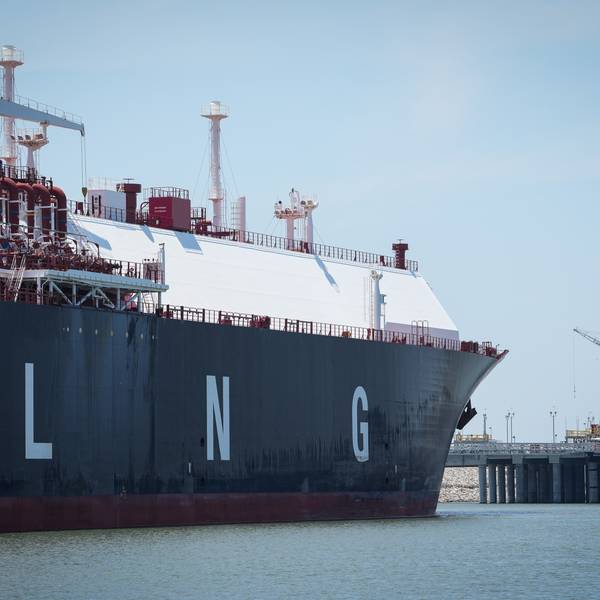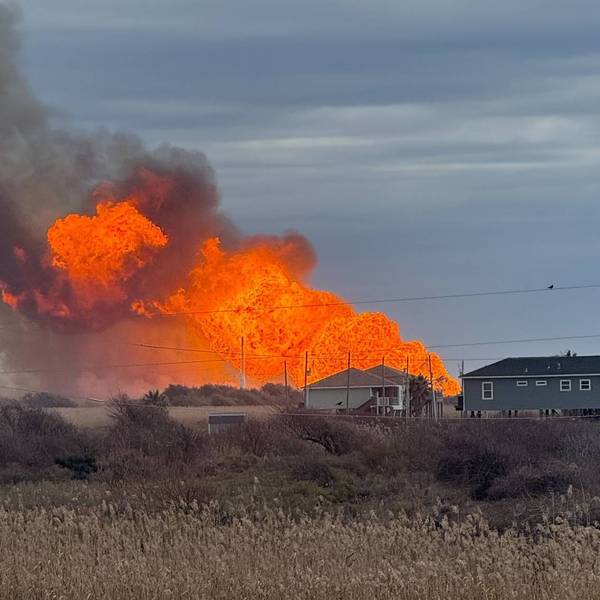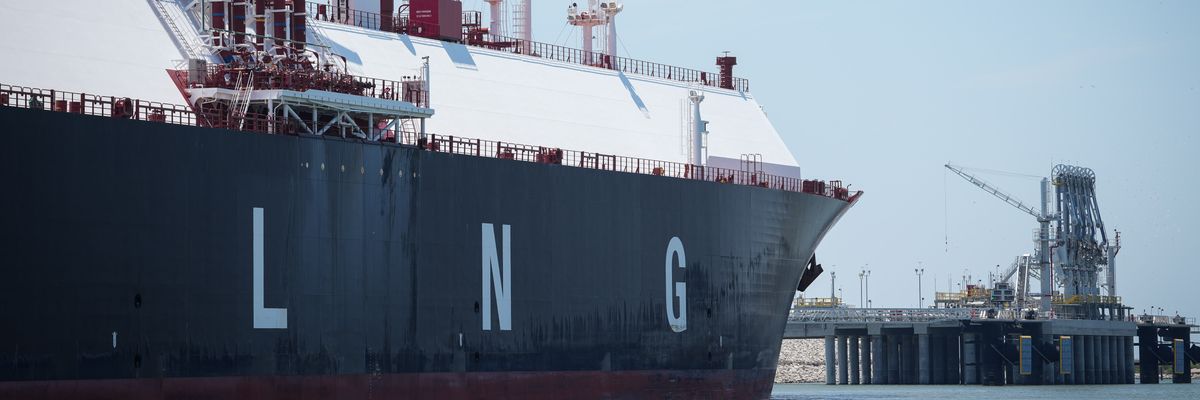More than 60 congressional Democrats and Independent Sen. Bernie Sanders on Tuesday urged the Biden administration to reconsider whether approving new licenses for liquefied natural gas exports is in the interest of the U.S. public, given the threat such projects pose to the climate, frontline communities, and U.S. consumers.
In a letter to U.S. Energy Secretary Jennifer Granholm, the lawmakers argued that the federal government's methods for assessing the climate impacts of proposed LNG export projects are "outdated and insufficient." The letter points specifically to the Energy Department's assumption that all LNG exports produce net climate benefits, a view that runs counter to volumes of scientific research, including recent evidence cited by the signers.
"Scientific reports, including a recent peer-reviewed study, from Brown University and RMI, have found that natural gas can be as bad for the climate as coal, when only small methane leaks are factored in," the lawmakers wrote. "Analysis from the Sierra Club has found that lifecycle emissions of all existing and proposed LNG export terminals would be equivalent to 681 coal plants or 548 million gasoline-powered cars annually, putting domestic and global climate targets out of reach."
The lawmakers also challenged the Department of Energy's case-by-case approach to examining proposed LNG export licenses, which they said "ignores the aggregate impact that the explosive growth in U.S. LNG exports is having on climate, communities, and our economy."
"DOE has never rejected an LNG export application on the basis of adverse impacts to the American people, and we urge DOE to consider at what point additional export licenses are no longer consistent with the public interest," the members of Congress added.
Long-time environmentalist and 350.org co-founder Bill McKibben applauded the lawmakers for speaking out against LNG exports, calling the issue "super important."
In the first half of 2023, the U.S. exported more LNG than any other country, and the Biden administration is currently weighing whether to approve the Calcasieu Pass 2 (CP2) LNG export hub on Louisiana's coast. If completed, the project would have the capacity to export up to 24 million tons of LNG per year.
Around the world, fossil fuel companies are planning to expand LNG capacity by 162%, according to a database released Wednesday. Such an expansion would endanger hopes of constraining planetary warning and preventing the worst of the climate emergency.
"It is critical that DOE assess the climate, environmental justice, and consumer impacts when determining whether exports are in the public interest, especially as the agency considers its current pipeline of 16 LNG export projects under review," the lawmakers wrote in their letter to Granholm, specifically mentioning CP2 and urging the administration to open the process up for public comment.
"The stakes could not be higher," they added. "It is long past time for DOE to update and clarify how it determines whether LNG export projects are in the public interest, starting with the CP2 project. No public interest determination will be viewed as credible unless the perspectives of the public are heard, understood, and reflected in DOE’s decision on CP2 and across the board."
Sen. Jeff Merkley (D-Ore.), an outspoken critic of CP2, spearheaded the letter. In late September, Merkley described the proposed LNG export terminal as the "next climate litmus test" and urged President Joe Biden to reject it.
"CP2 would poison communities and fly in the face of our climate goals," the senator wrote on social media.
In addition to emphasizing the climate justice impacts of surging LNG exports, the lawmakers' letter makes the case that the gas export boom is bad for U.S. consumers.
"LNG exports drive up household energy burdens across the country," they wrote. "The [U.S. Energy Information Administration] found that 'higher LNG exports create a tighter domestic natural gas market... increasing domestic natural gas prices,' and this link was on clear display when an explosion at Freeport LNG sent domestic gas prices plummeting and its announced restart caused them to rise sharply again."
"DOE's public interest determination for LNG exports should consider the effect that these additional exports will have on U.S. consumers already suffering from inflation, particularly low-income households, whose energy burden is typically three times higher than non-low-income households," the lawmakers argued.




